About / Despre
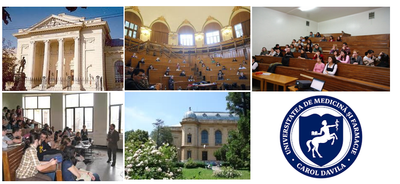
Disciplina Psihologie Medicală a Facultăţii de Medicină de la UMF „Carol Davila” – Bucureşti a fost fondată în anul 1993.
Cursul de Psihologie Medicală a evoluat ulterior în câteva secţiuni separate (Psihologie Medicală şi Comunicare Medicală, Ştiinţele Comportamentului Uman şi Sociologie, Psihosomatică), acoperind un mai mare număr de studenţi şi având un conţinut tematic mai amplu.
De-a lungul timpului, personalul disciplinei a desfăşurat activităţi didactice nu numai la Facultatea de Medicină, ci şi la alte facultăţi din cadrul UMF „Carol Davila” (Facultatea de Balneofiziokinetoterapie, Colegiul de Geriatrie, Facultatea de Moaşe şi Asistente Medicale), numărul total de studenţi instruiţi depăşind cifra de 30.000.
Activitatea disciplinei Psihologie Medicală a cunoscut o continuă dezvoltare şi diversificare, în acord cu cerinţele de formare europene, dar şi cu specificul sistemului sanitar din România. Educaţia în domeniile Psihologiei Medicale şi conexe vizează în prezent un număr de circa 2.500 studenţi / an (500 în limba engleză).
Începând cu anul 2004, grupul studenţesc de studiu în psihologie (sub coordonarea Prof. Dr. Ovidiu Popa-Velea) a condus la elaborarea de lucrări ştiinţifice, lucrări de licenţă, proiecte şi workshop-uri de interes curricular şi extracurricular.
The Department of Medical Psychology at the Faculty of Medicine at "Carol Davila" University of Medicine and Pharmacy in Bucharest was founded in 1993. The Medical Psychology course later evolved into several separate tracks (Health Psychology and Medical Communication, Behavioral Medicine and Sociology, and Psychosomatics), covering a larger number of medical students and a wider range of topics.
Over time, the staff of the discipline did not only teach at the Faculty of Medicine, but also in other faculties of UMF "Carol Davila" (e.g. College of Kinesiotherapy, College of Geriatrics, Faculty of Midwifery and Nursing), the total number of trained students exceeding 30,000.
The activity of the Medical Psychology discipline has been constantly developing and diversifying, in accordance with the European training requirements, as well as with the specifics of the Romanian health system. Education in Medical Psychology and related fields currently targets about 2,500 students per year (500 in English).
Since 2004, the activity of the student research group (functioning under the coordination of Prof. Dr. Ovidiu Popa-Velea), lead to the elaboration of scientific papers, licensing works, projects and workshops of curricular and extracurricular interest.
Team / Echipa
Ovidiu Popa-Velea
Professor, MD, PhD Medicine, BA, MA Psychology, Fulbright Alumnus
Liliana Veronica Diaconescu
Associate Professor, MD, PhD Medicine, BA, MA Psychology
Alexandra Ioana Mihăilescu
Senior Lecturer, MD, PhD Medicine
Irena Iulia Dayeh
MD, Ph D candidate
Andrei Gabriel Zanfir
MD, MA Psychology, PhD candidate
Dana Marincaş
MD, PhD
Tamara Cheşcheş
MD, PhD candidate
Laura Matei
Psychologist, PhD candidate
Publications (selection) / Publicaţii (selecţie)

„The Predictive Value of Burnout and Impostor Syndrome on Medical Students’ Self-Esteem and Academic Performance: A Cross-Sectional Study", Education Sciences, 2024, 14, 1318.
Diaconescu, L.V., Mihăilescu, A.I., Stoian-Bălăşoiu, I.R., Cosma, N.A., Drakou, A., Popa-Velea, O.
Learn More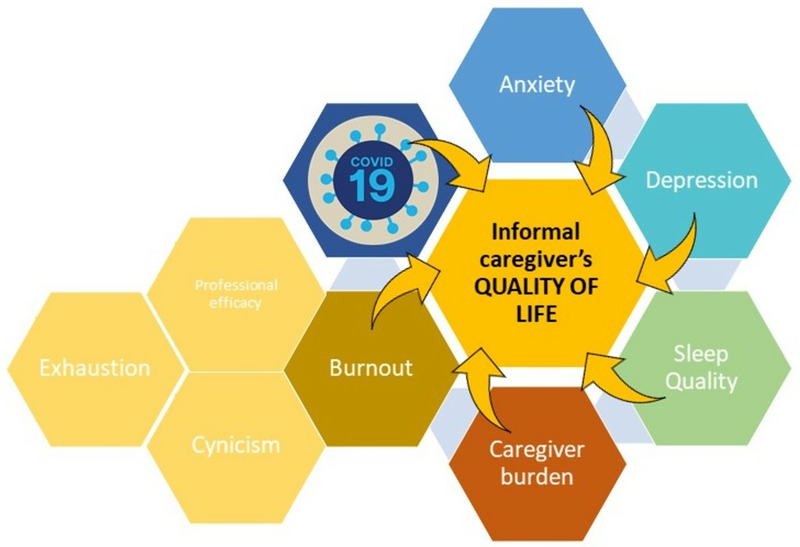
„Psychological Factors Associated with General Quality of Life in the Context of COVID-19 Pandemic: A Cross-Sectional Study on a Multicultural Sample of Romanian Medical Students”, Healthcare, 2024, 12, 1243.
Mihăilescu, A., Popa-Velea, O., Ciobanu, A.M., Diaconescu, L.V., Graur, A., Ioniţă, I., Carşote, M.
Learn More
„Academic burnout in psychology and health-allied sciences: the BENDiT-EU program for students and staff in higher education”. Frontiers in Psychology, 2023, 14, 1239001.
Kourea, L., Papanastasiou, E.C., Diaconescu, L.V., Popa-Velea, O.
Learn More
"The Impact of Self-Efficacy, Optimism, Resilience and Perceived Stress on Academic Performance and Its Subjective Evaluation: A Cross-Sectional Study", International Journal of Environmental Research and Public Health, 2021, 18(17), 8911.
Popa-Velea, O., Pîrvan, I., Diaconescu, L.V.
Learn More
"Meaning in Life, Subjective Well-Being, Happiness and Coping at Physicians Attending Balint Groups: A Cross-Sectional Study ", International Journal of Environmental Research and Public Health, 2021, 18(7), 3455.
Popa-Velea, O., Mihăilescu, A.I., Diaconescu, L.V., Gheorghe, I.R., Ciobanu, A.M.
Learn More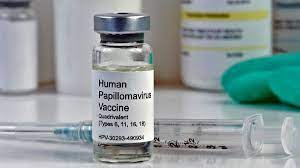
"Psychological Variables Associated with HPV Vaccination Intent in Romanian Academic Settings", International Journal of Environmental Research and Public Health, 2021, 18(17), 8938.
Diaconescu, L.V., Gheorghe, I.R., Cheşcheş, T., Popa-Velea, O.
Learn More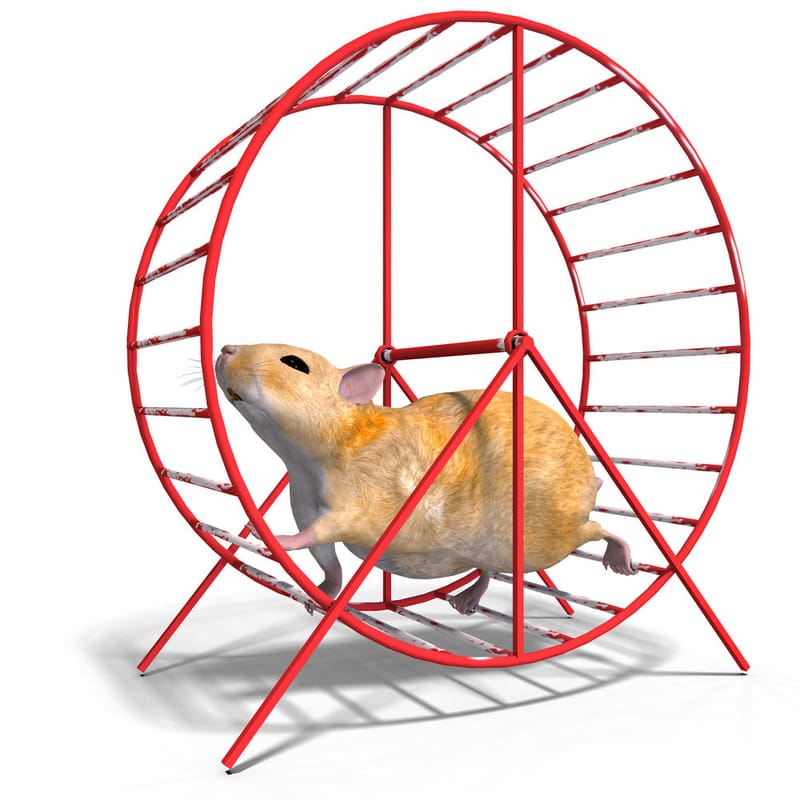
"Factors Associated with Burnout in Medical Academia: An Exploratory Analysis of Romanian and Moldavian Physicians", International Journal of Environmental Research and Public Health, 2019, 16(13), 2382.
Popa-Velea, O., Diaconescu, L.V., Gheorghe, I.R., Olariu, O., Panaitiu, I., Cerniţanu, M., Goma, L., Nicov, I., Spinei, L.
Learn More
"Resilience and active coping style: Effects on the self-reported quality of life in cancer patients”, The International Journal of Psychiatry in Medicine, 2017, 52(2): 124-136.
Popa-Velea, O., Diaconescu, L., Jidveian Popescu, M., Truţescu, C.
Learn More
„Dysfunctional attachment type among teenagers with early motherhood: prevalence and diagnosis through the DAP projective test”, Romanian Journal of Child and Adolescent Psychiatry, 2016, 4 (3-4): 23-30.
Truţescu, C., Tilici, O., Luca, A.M., Popa-Velea, O.
Learn More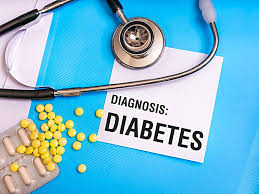
„Psychopathology and psychotherapeutic intervention in diabetes: particularities, challenges, and limits”, Journal of Medicine and Life, 2016, 9 (4): 328-333.
Popa-Velea, O., Bubulac, L., Petrescu, L., Purcărea, R.M.
Learn More
„Current challenges and pitfalls in the pharmacological treatment of depression”, Journal of Medicine and Life, 2015 Apr-Jun; 8 (2): 181-186.
Popa-Velea, O., Gheorghe, I.R., Truţescu, C.I., Purcărea, V.L.
Learn More
„Psychosocial factors associated to violence against women”, Romanian Journal of Legal Medicine, 2015, 23 (3): 221-226.
Popa-Velea, O., Truţescu, C., Curcă, G.C.
Learn More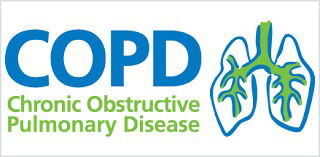
„Psychological intervention - a critical element of rehabilitation in chronic pulmonary diseases”, Journal of Medicine and Life, 2014 Jun 15; 7(2): 274-281. Review
Popa-Velea, O., Purcărea, V.L.
Learn More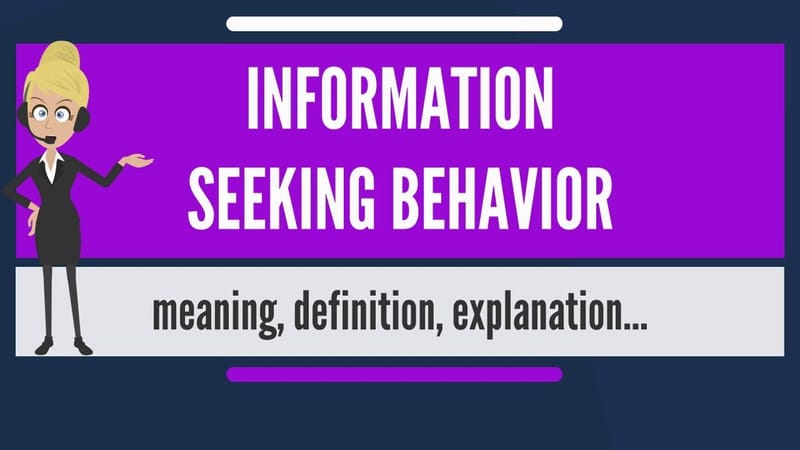
„Cause and effect: the linkage between the health information seeking behavior and the online environment-a review”, Journal of Medicine and Life, 2014 Sep 15; 7 (3): 310-316.
Brătucu, R., Gheorghe, I.R., Purcărea, R.M., Gheorghe, C.M., Popa-Velea, O., Purcărea, V.L.
Learn More
„Influence of personalized therapeutic approach on quality of life and psychiatric comorbidity in patients with advanced colonic cancer requiring palliative care”, Journal of Medicine and Life, 2010 Jul-Sep ;3 (3): 343-347.
Popa-Velea, O., Cernat, B., Ţambu, A.
Learn More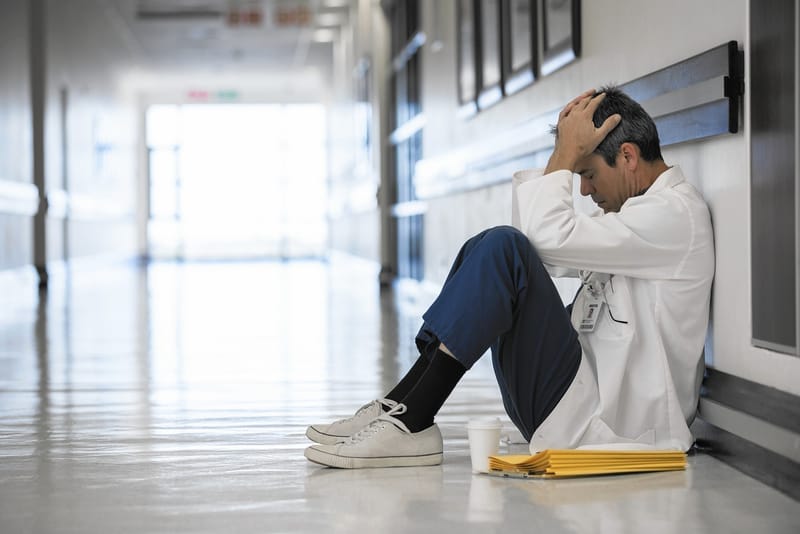
„Occupational burnout levels in emergency medicine--a stage 2 nationwide study and analysis”, Journal of Medicine and Life, 2010 Oct-Dec; 3 (4): 449-453.
Popa, F., Arafat, R., Purcărea, V.L., Lală, A., Popa-Velea, O., Bobîrnac, G.
Learn MoreTeaching / Predare

Ipsa scientia potestas est
(RO) Obiectivul activităţii didactice desfăşurate în cadrul disciplinei noastre nu se limitează la distribuirea de cunoştinţe cu privire la diverse teorii şi modele din Psihologie, ci vizează, în egală masură, şi dezvoltarea abilităţilor creative şi de cercetare la studenţii Facultăţii de Medicină. În acest sens, ne orientăm eforturile în direcţia angrenării studenţilor cu aptitudini de cercetare în elaborarea de lucrări ştiinţiifice şi în prezenţa la conferinţe şi congrese naţionale şi internaţionale de Psihologia Sănătăţii, Psihosomatică şi Medicină Comportamentală. (EN) The objective of the didactic activity carried out within our department is not limited to the delivery of knowledge about diverse psychological theories and models, but also aims the development of creative and research skills at the students of the Faculty of Medicine. In this respect, we direct our efforts in engaging the students with research skills in the elaboration of scientific papers and in attending national and international conferences of Health Psychology, Psychosomatics and Behavioral Medicine.
Learn MoreInfo (ROMANIAN, ENGLISH)
Psihologie Medicală şi Comunicare Medicală Health Psychology and Medical Communication 28 ore de curs, 28 ore de lucrări practice 28 lecture hours, 28 seminar hours
 INFORMAŢII GENERALE DESPRE CURSUL DE PSIHOLOGIE MEDICALĂ ŞI COMUNICARE MEDICALĂ
INFORMAŢII GENERALE DESPRE CURSUL DE PSIHOLOGIE MEDICALĂ ŞI COMUNICARE MEDICALĂ
Obiective: Achiziţionarea de către studenţi a cunoştinţelor teoretice şi a abilităţilor practice necesare în scopul aplicării psihologiei în intervenţiile legate de sănătate. Cunoaşterea modalităţilor în care diverse comportamente şi cogniţii influenţează sănătatea şi boala. Înţelegerea bolii în tripla ei dimensiune: biologică, psihologică şi socială. Cunoaşterea principalelor tipuri de intervenţii psihoterapeutice şi a locului şi rolului acestora în planul general de tratament, precum şi a rolului distinct al psihologului clinician în echipa terapeutică.
Format: Cursul este conceput ca un curs introductiv pentru studenţii din ciclul inferior de studii şi este structurat ca o serie de prelegeri (14) şi lucrări practice (14). Se aşteaptă ca participanţii să aibă cunoştinţe minimale de Psihologie, dobândite la liceu, şi care să le faciliteze asimilarea conceptelor-cheie de Psihologie Medicală şi Comunicare Medicală. Învăţarea va fi un proces interactiv, astfel încât studenţii sunt încurajaţi să pună întrebări şi să comenteze orice fel de chestiuni de interes legate de desfăşurarea cursului.
Scopuri: La sfârşitul cursului studentul trebuie să: 1.cunoască / înţeleagă rolul patogenic al factorilor psihologici în apariţia bolilor şi tulburărilor psihosomatice; 2.cunoască teorii şi concepte de bază cu privire la stress şi la instrumentele psihometrice de evaluare a acestuia; 3.cunoască rolul conceptelor de Psihologie a Sănătăţii în practica clinică de zi cu zi; 4.cunoască competenţele specifice psihologului clinician; 5.aibă abilitatea de identificare a principalilor factori psihopatogenici care reclamă necesitatea psihoterapiei şi consilierii; 6.deţină abilitatea de identificare a variatelor tulburări psihologice şi principalelor trăsături de personalitate corelate cu sănătatea şi boala; 7.să conştientizeze importanţa anumitor abilităţi relaţionale specifice rolului de medic în îmbunătăţirea complianţei terapeutice; 8.stăpânească noţiuni elementare de Comunicare Generală şi Comunicare Medicală; 9.personalizeze mesajele comunicaţionale în funcţie de specificul bolii şi al pacientului; 10.deţină un repertoriu comunicaţional adecvat în relaţia cu familia / aparţinătorii pacientului; 11.evalueze eficienţa / ineficienţa comunicării terapeutice; 12.cunoască caracteristicile de bază ale unor abordări psihoterapeutice şi să poată face recomandări pertinente în acest sens.
Cerinţe: Este necesară prezența activă la curs și lucrările practice (inclusiv la discuțiile din cadrul acestora). Prezența este monitorizată de către asistenții de grupă și este analizată în conformitate cu art.53 din Regulamentul de Activitate Profesională a studenţilor, disponibil la https://umfcd.ro/studenti/norme-legale/regulament-activitate-profesionala/
Evaluare: Notele se bazează pe performanţa studentului la examenul scris. Activitatea bună şi foarte bună la lucrările practice (exprimată în nota finală de 9 sau 10 obţinută la examenul practic) este considerată un plus.

GENERAL INFORMATION ABOUT THE COURSE OF HEALTH PSYCHOLOGY AND MEDICAL COMMUNICATION
Objectives: Acquiring by the students of theoretical knowledge and practical abilities necessary for applying psychology in health-related interventions. Knowledge about the modalities through which various behaviors and cognitions influence health and disease. Understanding of the disease in its triple dimension: biological, psychological and social. Knowledge about the main types of psychotherapeutic interventions, their place and role in the general treatment plan, as well as about the distinct role of the clinical psychologist in the therapeutic team.
Format: The course is designed as an introductory undergraduate course, and is structured as a series of lectures (14) and seminars (14). Students are expected to have a minimal background in General Psychology, obtained in high school, which would facilitate the assimilation of key concepts of Health Psychology and Medical Communication. Learning will be an interactive process, so all students are encouraged to ask and to comment on any possible issues of interest concerning the course.
Purposes: At the end of the course the student must: 1.know / understand the pathogenic role of the psychological factors in the onset of psychosomatic diseases and disorders; 2.know theories and basic concepts about stress and its psychometric instruments of evaluation; 3.know the role of Health Psychology concepts in everyday live; 4.know the specific competencies of the clinical psychologist; 5.have the ability to identify the main psychopathogenic factors that claim the necessity of psychotherapy and counselling; 6.have the ability to identify the various psychological disorders and the main personality traits correlated with health and disease; 7.possess certain communication skills specific to the doctor role and to be aware about their importance in improving compliance to the recommendations regarding sanogenic behaviors; 8. master basic notions of General Communication and Medical Communication; 9. customize communication messages, according to the specifics of the disease and the patient; 10. have an adequate communication repertoire in the relationship with the patient's family/relatives; 11. evaluate the efficiency / inefficiency of therapeutic communication; 12. know the basic characteristics of several psychotherapeutic approaches and be able to make relevant recommendations in this regard.
Requirements: Students are expected to attend regularly the course and the seminars, and to participate actively in group discussions. The attendance is monitored by the teaching assistants and is analyzed in accordance to article 53 from the Regulations of Student's Professional Activities, available at https://umfcd.ro/en/students/professional-activity-regulation/
Evaluation: Grades are based on student’s performances at the final exam. Good and very good activity at the seminar (expressed as a grade of 9 or 10 at the final seminar evaluation) is considered a plus.
Programa analitică (română)
PROGRAMA ANALITICĂ A CURSULUI DE PSIHOLOGIE MEDICALĂ ŞI COMUNICARE MEDICALĂ

1. Psihologia Medicală: domeniu de interferenţă între Medicină şi ştiinţele psihosociale
Psihologia Sănătăţii, Psihosomatica, Medicina Comportamentală, Psihologia Clinică: asemănări şi diferenţe. Rolul psihologului clinician în mediul spitalicesc.
Trăsături comportamentale (A,C,D) relaţionate cu o susceptibilitate crescută la boală. Trăsături şi stiluri cognitive protectoare şi cu risc.
Orientarea clinicianului în faţa unei tulburări de comportament.
Principalele metode de cercetare în Psihologia Medicală.
2. Stressul psihic (1)
Definiţie. Agenţi stressori.
Modele teoretice ale stressului (accepţiuni clasice vs. moderne).
Agenţi stressori: tipuri, particularităţi ale agenţilor stressori psihici faţă de alţi agenţi stressori. Scala evenimentelor majore de viaţă Holmes şi Rahe. Relativitatea percepţiei şi evaluării (appraisal) agenţilor stressori.
Corelaţii hormonale ale stressului.
Rolul pozitiv al endorfinelor.
3. Stressul psihic (2)
Percepţia variabilă a stressului: diferenţa "eustress" - "distress".
Impactul patogenic al stressului. Conceptul de încărcătură allostatică. Sindromul de neajutorare şi lipsă de speranţă (Seligman).
Strategii de coping funcţionale şi disfuncţionale.
Programe şi strategii antistress: eficacitate, validitate interculturală.
4. Abordarea multifaţetată a bolii din perspectiva Psihologiei Sanătăţii
Conceptualizarea bolii: modele (biomedical, psihologic, bio-psiho-social). Aspecte sociale şi culturale ale bolii. Rolul suportului social.
Modele teoretice privind atitudinile faţă de boală şi tratament (HBM, TRA, TPB, modelul Leventhal). Utilitatea practică a cunoaşterii acestor modele în relaţia cu pacienţii problematici / dificili.
Variabile individuale care influenţează riscul de îmbolnăvire şi comportamentul faţă de boală.
5. Tulburări şi boli psihosomatice
Asemănări şi deosebiri. Modele explicative variate ale patogenezei bolilor psihosomatice (clasice: Alexander, Cannon, Pavlov; abordări moderne).
Exemplificări clinice.
Abordarea terapeutică modernă a tulburărilor şi bolilor psihosomatice.
6. Durerea, un simptom critic din punct de vedere psihologic
Aspecte generale (tipuri de durere, cauze ale durerii). Rolul factorilor psihologici în producerea şi intensificarea durerii (ex.depresia, anxietatea). Particularităţile sindroamelor dureroase din bolile cronice/incurabile. Intervenţii psihologice în reducerea durerii (hipnoză, relaxare, imagerie dirijată).
7. Comunicarea medicală (1)
Relaţia medic-pacient. Statusurile și rolurile presupuse ale medicului şi pacientului. Aspecte de ordin etic.
Comunicarea: funcţii, principii, elemente componente, tipuri de comunicare (verbală, non-verbală).
8. Comunicarea medicală (2)
Diferite tipuri de anamneză şi utilitatea lor, abilităţi ale medicului de natură a creşte eficienţa comunicării (ascultarea activă, empatia, asertivitatea). Modalităţi de creştere a abilităţilor de comunicare la personalul medical.
9. Comunicarea medicală (3)
Comunicarea funcţie de vârstă, gen, status social, apartenenţă culturală.
Modalităţi de comunicare a veștilor rele către pacient.
10. Comunicarea medicală (4)
Comunicarea cu pacienţii problematici (ex. anxioși, depresivi, agresivi, cu tulburări de personalitate) – principii generale.
Specificul comunicării cu familia pacientului.
Modalităţi de conlucrare medic-familie (ex. angrenarea familiei în planul de tratament, comunicarea de veşti rele).
11. Consecinţe ale comunicării / lipsei de comunicare medic-pacient (1)
Sindromul burnout la personalul medical.
Iatrogenia (ex. comorbiditatea psihiatrică indusă de medic, dependenţa psihică de medicament).
Aderenţă vs. complianţă. Factori psihologici care le influenţează (ex. în bolile cronice).
12. Consecinţe ale comunicării / lipsei de comunicare medic-pacient (2)
Contagiunea informaţională. Balanţa informare din surse autorizate / neautorizate.
Calitatea percepută a vieţii pacientului şi familiei acestuia. Echilibrul între câştiguri şi pierderi
Efectele placebo, pseudoplacebo şi nocebo. Factori care le influenţează apariţia, importanţă în mediul clinic.
13. Psihoterapie (1)
Definiţii, clasificare şi indicaţii ale psihoterapiei. Modelarea comportamentului: de la principii teoretice la consiliere şi psihoterapie.
Psihanaliza (definiţie, baze teoretice, indicaţii, eficienţă).
14. Psihoterapie (2)
Psihoterapia cognitiv-comportamentală (definiţie, baze teoretice, indicaţii şi eficienţă).
Tehnici de relaxare şi hipnoză (definiţie, baze teoretice, indicaţii şi eficienţă).
Psihoterapia rogersiană (definiţie, baze teoretice, indicaţii şi eficienţă).
Syllabus (ENGLISH)
CURRICULUM FOR THE COURSE OF HEALTH PSYCHOLOGY AND MEDICAL COMMUNICATION

1. Medical Psychology: field of interference between Medicine and psychosocial sciences
Health Psychology, Psychosomatics, Behavioral Medicine, Clinical Psychology: similarities and differences. The role of the clinical psychologist in the hospital environment. Behavioral traits (A,C,D) related to an increased susceptibility to the disease. Protective and risky cognitive styles. Orientation of the clinician confronting a behavioral disorder. The main research methods in Medical Psychology.
2. Mental stress (1)
Definition. Stressors. Theoretical models of stress (classical vs. modern understandings). Stressors: types, particularities of psychological stressors compared to other stressors. Holmes and Rahe Major Life Events Scale. The relativity of perception and evaluation (appraisal) of stressors. Hormonal correlates of stress. The positive role of endorphins.
3. Mental stress (2)
Various perceptions of stress: the difference between "eustress" and "distress". The pathogenic impact of stress. The concept of allostatic load. The helplessness-hopelessness syndrome (Seligman). Functional and dysfunctional coping strategies. Antistress programs and strategies: effectiveness, cross-cultural validity.
4. The multifaceted approach to the disease from the perspective of Health Psychology
Conceptualization of the disease: models (biomedical, psychological, bio-psycho-social). Social and cultural aspects of the disease. The role of social support. Theoretical models regarding attitudes towards illness and treatment (the HBM, TRA, TPB, Leventhal models). The practical usefulness of knowing these models in the relationship with problematic / difficult patients. Individual variables that influence disease risk and disease behavior.
5. Psychosomatic disorders and diseases
Similarities and differences. Various explanatory models of the pathogenesis of psychosomatic diseases (classics: Alexander, Cannon, Pavlov; modern approaches). Clinical examples. The modern therapeutic approach to psychosomatic disorders and diseases.
6. Pain, a psychologically critical symptom
General aspects (types of pain, causes of pain). The role of psychological factors in the production and intensification of pain (e.g., depression, anxiety). The particularities of pain syndromes in chronic/incurable diseases. Psychological interventions to reduce pain (hypnosis, relaxation, guided imagery).
7. Medical communication (1)
Doctor-patient relationship. The presumed statuses and roles of the doctor and the patient. Ethical aspects. Communication: functions, principles, component elements, types of communication (verbal, non-verbal).
8. Medical communication (2)
Different types of anamnesis and their usefulness. Doctor's skills to increase the efficiency of communication (active listening, empathy, assertiveness). Ways to increase the communication skills of medical personnel.
9. Medical communication (3)
Communication according to age, gender, social status, cultural affiliation. Ways of communicating bad news to the patient.
10. Medical communication (4)
Communication with problematic patients (e.g., anxious, depressed, aggressive, with personality disorders) - general principles. Specificity of communication with the patient's family. Ways of doctor-family cooperation (e.g., engagement of the family in the treatment plan, communication of bad news).
11. Consequences of doctor-patient communication / lack of communication (1)
Burnout syndrome in medical personnel. Iatrogenicity (e.g. psychiatric comorbidity induced by the doctor, mental drug addiction). Adherence vs. compliance. Psychological factors that influence them (e.g., in chronic diseases).
12. Consequences of doctor-patient communication / lack of communication (2)
Informational contagion. Information balance from authorized / unauthorized sources. The perceived quality of life of the patient and his family. The balance between gains and losses. The placebo, pseudoplacebo, and nocebo effects. Factors that influence their occurrence, importance in the clinical environment.
13. Psychotherapy (1)
Definitions, classification and indications of psychotherapy. Behavior modeling: from theoretical principles to counseling and psychotherapy. Psychoanalysis (definition, theoretical bases, indications, efficiency).
14. Psychotherapy (2)
Cognitive-behavioral psychotherapy (definition, theoretical bases, indications and efficiency). Relaxation and hypnosis techniques (definition, theoretical bases, indications and efficiency).
Referinţe bibliografice (română)
BIBLIOGRAFIE PENTRU CURSUL DE PSIHOLOGIE MEDICALĂ ŞI COMUNICARE MEDICALĂ
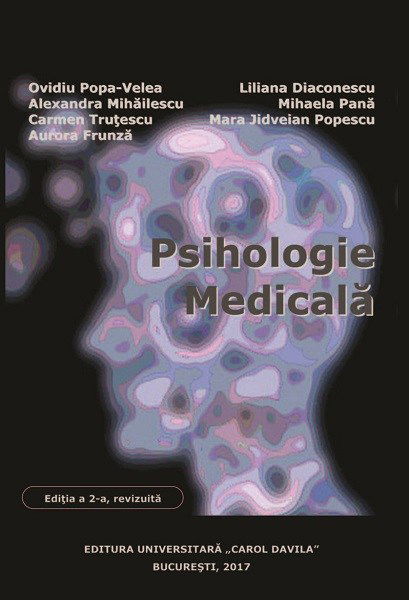
„Psihologie Medicală” (ed.a 2-a, revizuită), 2017, Bucureşti: Editura Universitară Carol Davila
Ovidiu Popa Velea, Liliana Diaconescu, Alexandra Mihăilescu, Mihaela Pană, Carmen Truțescu, Mara Jidveian Popescu, Aurora Frunză
Learn More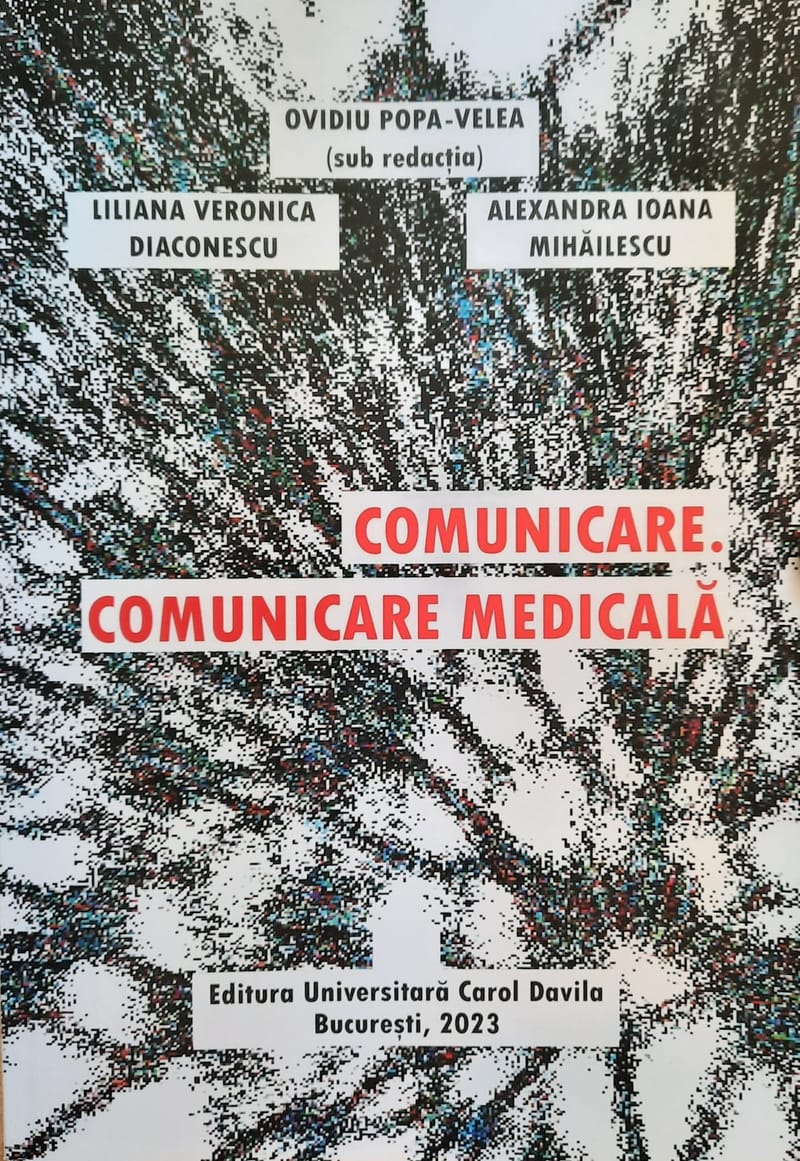
"Comunicare. Comunicare Medicală", 2023, Bucureşti: Editura Universitară Carol Davila
Ovidiu Popa-Velea (sub red.)., Liliana Veronica Diaconescu, Alexandra Ioana Mihăilescu
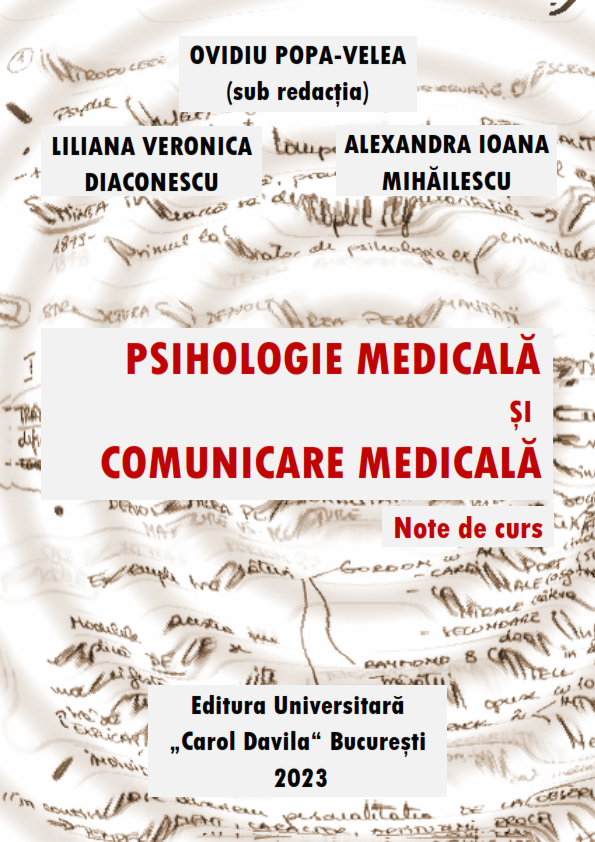
„Psihologie medicală şi Comunicare medicală“ (note de curs), 2023, Bucureşti: Editura Universitară Carol Davila
Ovidiu Popa-Velea, Liliana Diaconescu, Alexandra Mihăilescu
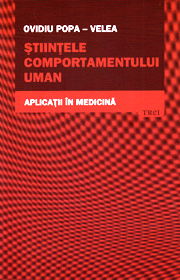
(opţional) „Ştiinţele comportamentului uman. Aplicaţii în medicină” (ediţia a 2-a, revizuită şi adăugită), 2015, Bucureşti: Editura Trei
Popa-Velea, O. (sub red.)
Learn More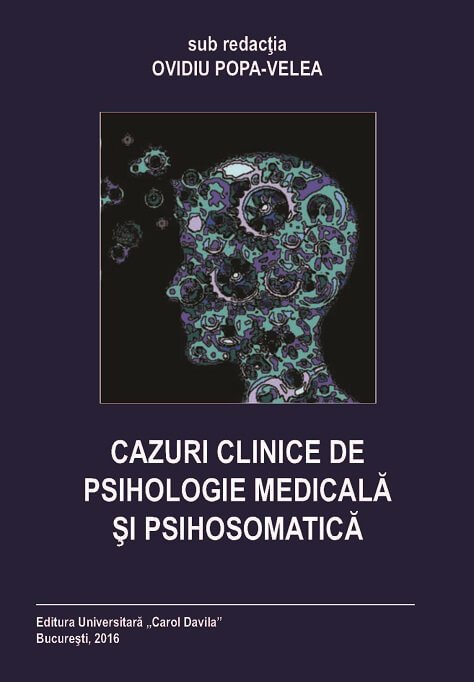
(opţional) "Cazuri clinice de Psihologie Medicală şi Psihosomatică", 2016, Bucureşti: Editura Universitară Carol Davila
Popa-Velea, O., (sub red.)
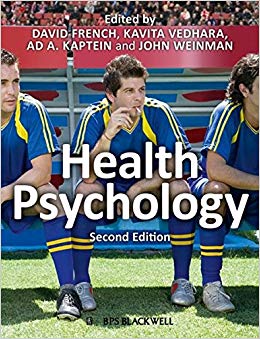
(opţional) „Health Psychology” (2nd Edition), 2010, London: BPS Blackwell
French, D., Vedhara, K., Kaptein, A., Weinman, J.
Learn More
(opţional) „Health Psychology” (11th Edition), 2018, London: McGraw Hill.
Taylor, S., Stanton, A.L.
Learn More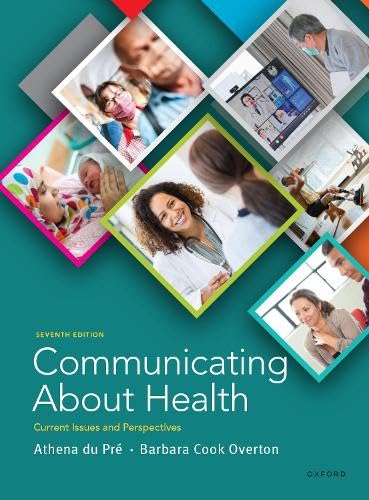
(opţional) „Communicating about health: Current issues and perspectives” (6th Ed.), 2020, New York: Oxford Press.
Du Pré, A., Overton, B.C.
Learn MoreReferences (ENGLISH)
REFERENCES FOR THE COURSE OF HEALTH PSYCHOLOGY AND MEDICAL COMMUNICATION
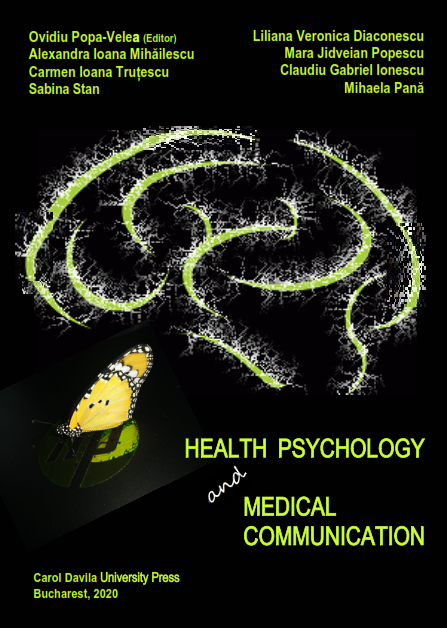
"Health Psychology and Medical Communication"
Popa-Velea, O. (ed.), Diaconescu, L.V., Mihailescu, A.I., Jidveian Popescu, M., Trutescu, C.I., Ionescu, C.G., Stan, S., Pana, M.
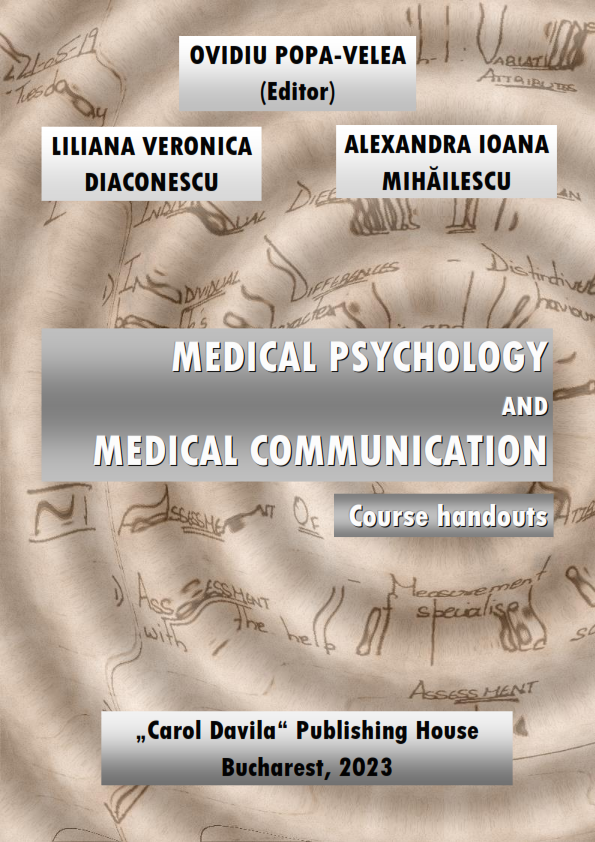
"Medical Psychology and Medical Communication" (course handouts). 2023, Bucharest: Carol Davila Publishing House
Popa-Velea, O., Diaconescu, L., Mihăilescu, A.
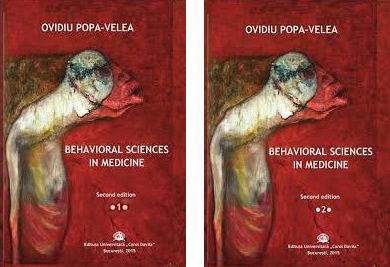
(optional) "Behavioral Sciences in Medicine", 2015, Bucharest: Carol Davila Publishing House
Popa-Velea, O.
Learn More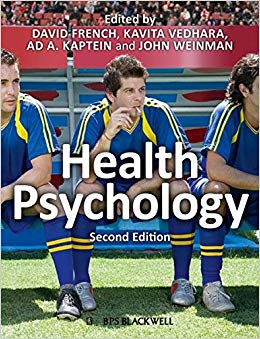
(optional) „Health Psychology” (2nd Edition), 2010, London: BPS Blackwell
French, D., Vedhara, K., Kaptein, A., Weinman, J.
Learn More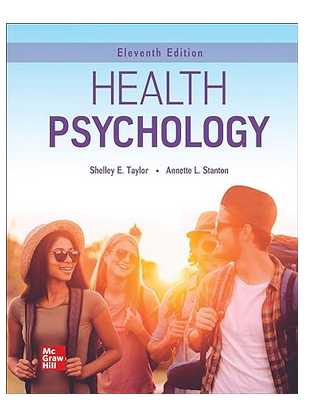
(optional) „Health Psychology” (11th Edition), 2018, London: McGraw Hill.
Taylor, S., Stanton, A.L.
Learn More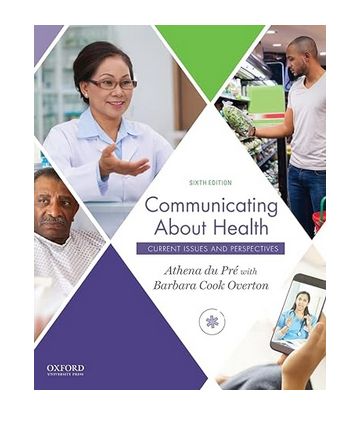
(optional) “Communicating about health: Current issues and perspectives” (6th Ed.), 2020, New York: Oxford Press.
Du Pré, A., Overton, B.C.
Learn More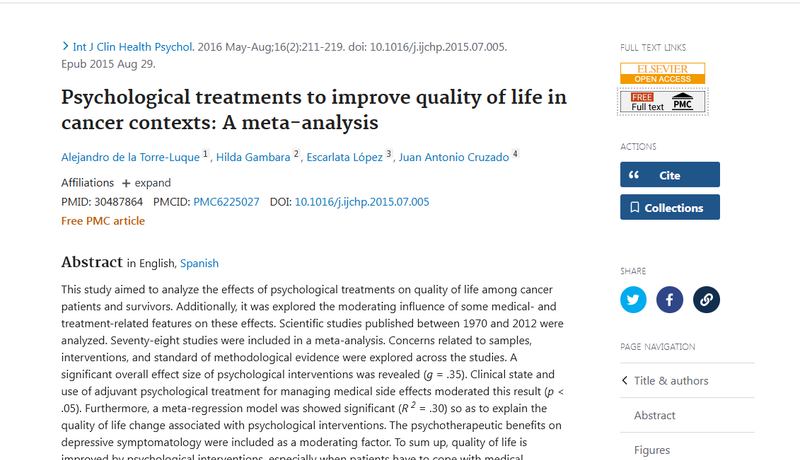
(optional) "Psychological treatments to improve quality of life in cancer contexts: A meta-analysis". International Journal of Clinical and Health Psychology, 2016, 16: 211-219.
De la Torre-Luque, A., Gambara, H., López, E., Cruzado, J.A.
Learn More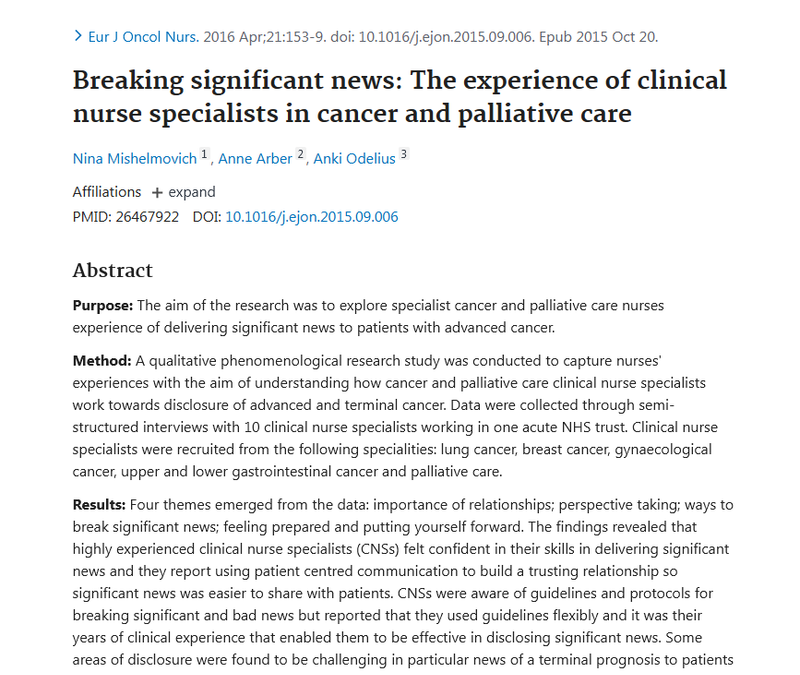
(optional) "Breaking significant news: The experience of clinical nurse specialists in cancer and palliative care". European Journal of Oncology Nursing, 2016, 21: 153-159.
Mishelmovich, N., Arber, A., Odelius, A.
Learn MoreExam / Examen
Psychosomatics (optional course)
Objectives: Making the students familiar with the basic notions regarding the involvement of the psychological factor in the etiopathogenesis of somatic diseases, as well as with the possibilities of their prevention and therapeutic intervention. Knowledge of the practical modalities in which somatic diseases can be generated and maintained by psychogenic factors. Understanding of the role of the clinical psychologist in a better management of the psychosomatic patients. Knowledge of the most important psychometric instruments used in assessing the gravity of psychosomatic diseases and their evolution (in connection with quality of life). Knowledge of the main types of efficient psychotherapeutic interventions in psychosomatic diseases.
At the end of the course the student must be able to:
1. Describe the main theories, concepts and clinical manifestations characteristic to psychosomatic disorders and diseases.
2. Know the risk factors and ethiopathogenic mechanisms responsible for the onset of psychosomatic diseases and disorders.
3. Be familiar with the most important psychotherapeutic orientations in the treatment of psychosomatic disease and with their eligibility criteria.
4. Have the ability to apply psychometric instruments, in order to establish the positive diagnosis, the differential diagnosis and the prognosis in psychosomatic disorders and diseases.
Syllabus:
1. Introduction in Psychosomatics
History. Theoretical models.
Connection Neurobiology (neuromediators, hormones) – Psychology (dysfunctional emotions and cognitive styles) in the genesis of psychosomatic diseases
Recent theoretical developments in Psychosomatics and their importance in clinical practice.
2. Cardiovascular diseases
Psychopathogenic variables involved in the onset and evolution of cardiovascular diseases. Description of the most prevalent PS cardiovascular diseases (high blood pressure, myocardial infarction, pectoral angina, cardiac failure, arrhythmias).
Psychological correlates of cardiovascular surgery (including transplantation).
Quality of life in cardiovascular diseases.
The positive role of social support in cardiovascular diseases.
Cardiac rehabilitation.
3. Respiratory diseases
Psychopathogenic mechanisms in respiratory diseases (examples: COPD, bronchial asthma, tuberculosis). Psychological reactions in respiratory diseases (example: bronchial asthma).
The issue of adherence in respiratory diseases. Psychological intervention in respiratory diseases (opportunities and challenges). Pulmonary rehabilitation.
4. Digestive diseases
Psychopathogenic mechanisms in digestive disease.
Functional gastrointestinal disorders (FGID). Behavior in chronic digestive diseases (examples).
Food disorders.
The psychotherapeutic approach of patients with FGID and chronic PS digestive diseases.
5. Renal diseases
Kidney stones. Urinary tract infection. Chronic renal disease. The psychological impact of end-stage renal disease (ESRD). Behavior in chronic renal disorders (examples). Behavioral modeling in renal diseases.
6. Cancer
The psychological impact of cancer diagnosis. Coping with cancer.
The psychological impact of cancer treatment.
Quality of life in cancer.
The psychological assistance of cancer patients.
7. The role of psychotherapy in psychosomatic diseases
The balance counseling – psychotherapy. The role of the clinical psychologist in the therapeutic team. Liaison psychiatry. Cognitive-behavioral therapy.
Relaxation and hypnosis. Family therapy. Group therapy.
References:
A. Mandatory references:
1. Popa-Velea, O. (2015). Behavioral Sciences in Medicine (2nd Edition), Ed.Universitară Carol Davila, Bucureşti, (vol.2: pag.257-276, 277-287, 288-303, 304-319, 320-337).
2. Popa-Velea, O. (2023). Psychosomatics, Ed.Universitară Carol Davila, Bucureşti.
B. Optional references:
3. Malcarne, V. (2011). Coping with cancer, în Friedman, H.S. The Oxford Handbook of Health Psychology. New York: Oxford University Press, pag.394-416;
4. Ginting, H., van de Ven, M., Becker, E.S., Näring, G. (2014). Type D personality is associated with health behaviors and perceived social support in individuals with coronary heart disease. Journal of Health Psychology, 21 (5): 727-737.
5. Chen, Q., Wu, C., Gao, Y., Chen, L., Liu, Y. (2015). A clinical study on the role of psychosomatic therapy in evaluation and treatment of patients with chronic obstructive pulmonary disease complicated with anxiety-depression disorder. International Journal of Clinical and Experimental Medicine, 8 (9): 16613–16619.
6. Keightley, P.C., Koloski, N.A., Talley, N.J. (2015). Pathways in gut-brain communication: Evidence for distinct gut-to-brain and brain-to-gut syndromes. Australian and New Zealand Journal of Psychiatry, 49 (3): 207-214.
7. Olagunju, A.T., Campbell, E.A., Adeyemi, J.D. (2015). Interplay of anxiety and depression with quality of life in endstage renal disease. Psychosomatics, 56 (1): 67-77.Malcarne, V. (2011). Coping with cancer, în Friedman, H.S. The Oxford Handbook of Health Psychology. New York: Oxford University Press, pag.394-416;
8. Fava, G.A., Cosci, F., Sonino, N. (2017). Current Psychosomatic Practice. Psychotherapy and Psychosomatics, 86: 13-30.
Exam:
The theoretical exam is written (30 single-choice questions).
Passing the seminar exam is a prerequisite to get into the theoretical exam (15 single-choice questions).
The exam of Psychosomatics can be taken exclusively in the exam session and is run according to the guidelines stipulated in titles 13-44 from the Students' Professional Activity Regulation, available at https://umfcd.ro/en/students/professional-activity-regulation/.
The makeup exam and the exam for raising the previously given grade can be taken exclusively in the Fall session, according to the same methodology and references as the initial exam.
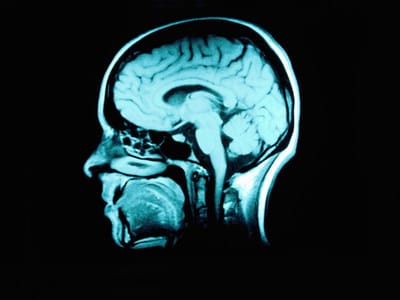
Info (ROMANIAN, ENGLISH)
Ştiinţele Comportamentului Uman (modulul psihosocial) şi Sociologie Behavioral Sciences in Medicine (psychosocial module) and Sociology 7 ore de curs, 21 ore de lucrări practice 7 course hours, 21 seminar hours
 INFORMAŢII GENERALE DESPRE CURSUL DE ŞTIINŢELE COMPORTAMENTULUI UMAN ŞI SOCIOLOGIE MEDICALĂ
INFORMAŢII GENERALE DESPRE CURSUL DE ŞTIINŢELE COMPORTAMENTULUI UMAN ŞI SOCIOLOGIE MEDICALĂ
Obiective: Cunoaşterea legăturii între comportament şi personalitate, a elementelor definitorii ale comportamentului normal şi patologic. Analiza conceptuală a comportamentelor nocive pentru sănătate, privite din perspectivă etiopatogenică, clinică, psihometrică şi terapeutică. Însuşirea de elemente teoretice, dar şi de abilităţi practice în relaţia cu comportamentul în situaţii clinice dificile (pacientul incurabil, pacientul chirurgical). Integrarea elementelor de Sociologie Medicală cu cele de Psihologie Medicală, pentru furnizarea de servicii medicale eficiente şi personalizate. Cunoaşterea unor tehnici psihoterapeutice eficiente în modularea comportamentului, precum şi a indicaţiilor acestora.
Format: Acest curs reprezintă o continuare a cursului de Psihologie Medicală şi Comunicare Medicală, fiind structurat ca o serie de 4 prelegeri şi 11 lucrări practice. Este de dorit ca studenţii să valorifice bazele dobândite de-a lungul anului 1, fapt ce va facilita asimilarea noţiunilor noi. Învăţarea va fi un proces interactiv, astfel încât studenţii sunt încurajaţi să pună întrebări şi să comenteze orice fel de chestiuni de interes legate de desfăşurarea cursului.
Scopuri:
La sfârşitul cursului studentul trebuie să:
1. Aibă abilitatea de a identifica descriptorii comportamentului normal şi patologic şi de orientare corespunzătoare a pacientului, în vederea obţinerii celui mai favorabil prognostic.
2. Cunoască originile comportamentului normal şi anormal, şi a legăturii acestora cu personalitatea şi alte variabile.
3. Cunoască diferitele teorii privind comportamentul şi a instrumentelor de evaluare a acestuia, precum şi modalităţile de intervenţie, centrate pe schimbarea comportamentului.
4. Deţină abilitatea de a înţelege originea comportamentelor nocive pentru sănătate, modalitatea în care acestea creează îmbolnăvire şi efectele acestora în plan clinic;
5. Cunoască modificările comportamentale în diferite circumstanţe clinice speciale (boli incurabile, intervenţii chirurgicale) şi a celor mai eficiente metode de adresare a acestora de către medic.
6. Conştientizeze importanţa unor concepte-cheie de Sociologie Medicală (ex. stratificarea socială, incluziunea socială, competenţa culturală, diversitatea) şi a relaţiei lor cu sănătatea.
7. Deţină abilitatea de a aprofunda pe cont propriu noţiunile de Ştiinţele Comportamentului Uman învăţate şi de aplicare creativă a acestora în context clinic.
8. Cunoască tehnici psihoterapeutice eficiente în modularea comportamentului, precum şi a indicaţiilor acestora.
9. Aibă cunoştinţe aprofundate legate de principiile interrelaţiilor hormoni-comportament, precum şi legate de intervenţia hormonilor în ciclul vieţii.
10. Aibă noţiuni fundamentale legate de implicarea hormonilor în comportamentul sexual şi sexualitate.
11. Deţină cunoştinţe de bază legate de implicarea hormonilor în comportamentul alimentar, precum şi în echilibrul hidro-electrolitic.
12. Aibă abilitatea de a înţelege interrelaţia dintre hormoni şi stress.
Cerinţe: Este necesară prezența activă la curs și lucrările practice (inclusiv la discuțiile din cadrul acestora). Prezența este monitorizată de către asistenții de grupă și este analizată în conformitate cu art.53 din Regulamentul de Activitate Profesională a studenţilor, disponibil la https://umfcd.ro/studenti/norme-legale/regulament-activitate-profesionala/
Evaluare: Notele se bazează pe performanţa studentului la examenul scris teoretic. Activitatea bună şi foarte bună la lucrările practice (exprimată în nota finală de 9 sau 10 obţinută la examenul practic) este considerată un plus.

GENERAL INFORMATION REGARDING THE COURSE OF BEHAVIORAL SCIENCES AND MEDICAL SOCIOLOGY
General objectives: Knowledge of the connection between behavior and personality, the defining elements of normal and pathological behavior. Conceptual analysis of behaviors harmful to health, viewed from an etiopathogenic, clinical, psychometric and therapeutic perspective. The acquisition of theoretical elements, but also of practical skills in relation to the behavior in difficult clinical situations (the incurable patient, the surgical patient). Integrating the elements of Medical Sociology with those of Medical Psychology, for the provision of efficient and personalized medical services. Knowledge of effective psychotherapeutic techniques in modulating behavior, as well as their indications.
Format: This course represents a continuation of the course of Health Psychology and Medical Communication, being structured as a series of 4 lectures and 11 seminars. It is desirable that the students value the bases acquired during the first study year, this facilitating the assimilation of new notions. Learning will be an interactive process, so all students are encouraged to ask and to comment on any possible issues of interest concerning the course.
Purposes:
At the end of the course the student must:
1. have the ability to identify the descriptors of normal and pathological behavior and of the appropriate orientation of the patient, in order to obtain the most favorable prognosis.
2. Know the origins of normal and abnormal behavior, and their connection with personality and other variables.
3. Know the different theories regarding behavior and its assessment tools, as well as intervention methods, focused on behavior change.
4. Have the ability to understand the origin of harmful behaviors, the way in which they create illness and their effects in clinical terms;
5. Know the behavioral changes in different special clinical circumstances (incurable diseases, surgical interventions) and the most effective methods of addressing them by the doctor.
6. Raise awareness of the importance of some key concepts of Medical Sociology (e.g., social stratification, social inclusion, cultural competence, diversity) and their relationship with health.
7. Have the ability to deepen on their own the concepts of Human Behavior Sciences learned and their creative application in a clinical context.
8. Know psychotherapeutic techniques effective in modulating behavior, as well as their indications.
9. Have in-depth knowledge related to the principles of hormone-behavior interrelationships, as well as related to the intervention of hormones in the life cycle.
10. Have fundamental notions related to the involvement of hormones in sexual behavior and sexuality.
11. Possess basic knowledge related to the involvement of hormones in eating behavior, as well as in hydro-electrolytic balance.
12. Have the ability to understand the interrelationship between hormones and stress.
Requirements: Students are expected to attend regularly the course and the seminars, and to participate actively in group discussions. The attendance is monitored by the teaching assistants and is analyzed in accordance to article 53 from the Students' Professional Activities Regulation, available at https://umfcd.ro/en/students/professional-activity-regulation/
Evaluation: Grades are based on student’s performances at the final theoretical exam. Good and very good activity at the seminar (expressed as a grade of 9 or 10 at the final seminar evaluation) is considered a plus.
Programa analitică (română)
PROGRAMA ANALITICĂ A CURSULUI DE ŞTIINŢELE COMPORTAMENTULUI UMAN ŞI SOCIOLOGIE MEDICALĂ (SCU-SM) *)

*) Mai jos se găseşte exclusiv conţinutul modulului psihosocial al cursului de SCU-SM
Conținutul modulului biologic va fi comunicat de către profesorii care susțin acea secţiune a cursului.
CURS 1. Introducere în comportamentul uman
Comportament şi personalitate, modele teoretice ale comportamentului, criterii de departajare normal-patologic, variabile care influenţează comportamentul (biologice, psiho-sociale şi culturale), metode de studiu al comportamentului
Comportamente cu risc (alcoolism, tabagism, consumul de droguri)
Factori de risc, modele teoretice explicative, manifestări clinice, modalităţi de intervenţie terapeutică
CURS 2. Comportamentul în circumstanţe clinice dificile
a) Pacienți incurabili
Reacții psihologice la moarte și suferință și factori care le influențează. Îngrijiri paliative (caracteristici, modele, concepte-cheie: ex. „moarte cu demnitate”, „nevoi nesatisfăcute”, „creating legacies”), actori și instituții care furnizează îngrijiri paliative (ex. managerul de caz, hospices). Asistența psihologică a pacienților paliativi: caracteristici și dileme etice (ex. eutanasia și sinuciderea asistată medical). Rolul speranței la pacienții incurabili.
b) Pacienți chirurgicali
Caracteristicile relației terapeutice în chirurgie. Reacții și comportamente psihologice ale pacienților chirurgicali. Asistența psihologică eficientă pentru pacienții chirurgicali.
CURS 3. Concepte-cheie ale Sociologiei Medicale și relația lor cu sănătatea
Rolul Sociologiei Medicale în generarea unei mai bune înțelegeri a bolii și a comportamentului legat de tratament. Importanța apartenenței la grup pentru reprezentările de sănătate și comportamentele derivate. Relația dintre stratificarea socială și sănătate/boală. Diferențele culturale privind interpretarea și exprimarea suferinței. Incluziune socială și sănătate. Diferențele transculturale care influențează relația medic-pacient. Conceptul de „competență culturală a medicului”.
CURS 4. Modalităţi de intervenţie comportamentală. Psihoterapia (PT): efecte asupra pacienţilor, medicilor şi aparţinătorilor
PT de scurtă durată, centrată pe obiectiv, analiza tranzacţională, PT de grup şi familială, art-terapia, medicina narativă (definiţie, fundamente teoretice, indicaţii, eficienţă)
Syllabus (ENGLISH)
CURRICULUM FOR THE COURSE OF BEHAVIORAL SCIENCES AND MEDICAL SOCIOLOGY (BS-MS) *)

*) This syllabus refers only to the psychosocial module of the BS-MS class.
It does NOT comprise the content of the biological module, which will be communicated by the teachers delivering that part of the class.
COURSE 1. Introduction in human behavior
Behavior and personality, theoretical models of behavior, criteria for disentangling between normal and pathological behavior, variables that can influence behavior (biological, psychosocial and cultural).
Risky behavior (alcoholism, smoking, drug abuse)
Prevalence, triggers, theoretical models, clinical symptoms, modalities of therapeutic intervention
COURSE 2. Behavior in clinically difficult circumstances
a) Incurable patients
Psychological reactions to death and suffering and factors influencing them. Palliative Care (characteristics, models, key concepts: e.g., good death, unmet needs, dignity of death), actors and institutions providing Palliative Care (case manager, hospices). Psychological assistance of palliative patients: characteristics and ethical dilemmas: role of hope in incurable patients; euthanasia and medically-assisted suicide.
b) Surgical patients
Characteristics of the therapeutic relationship in surgery. Psychological reactions and behaviors of surgical patients. Effective psychological assistance for surgical patients.
COURSE 3. Key concepts of Medical Sociology and their relationship to health
The role of Medical Sociology in the better understanding of disease and treatment-related behavior. Importance of group affiliation for health representations and derived behaviors. Relationship between social stratification and health/illness. Cultural differences concerning the interpretation and expression of suffering. Social inclusion and health. Cross-cultural differences influencing the doctor-patient relationship. The concept of “physician cultural competence”.
COURSE 4.Behavioral intervention. Psychotherapy: effects on patients, doctors and patients’ caregivers
Short-term objective-centered psychotherapy, transactional analysis, group and family therapy, art-therapy, narrative medicine (definitions, theoretical bases, indications, efficiency).
Referinţe bibliografice (română)
BIBLIOGRAFIE PENTRU CURSUL DE ŞTIINŢELE COMPORTAMENTULUI UMAN (MODULUL PSIHOSOCIAL) ŞI SOCIOLOGIE MEDICALĂ (această listă cuprinde EXCLUSIV referinţele pentru modulul psihosocial al cursului)
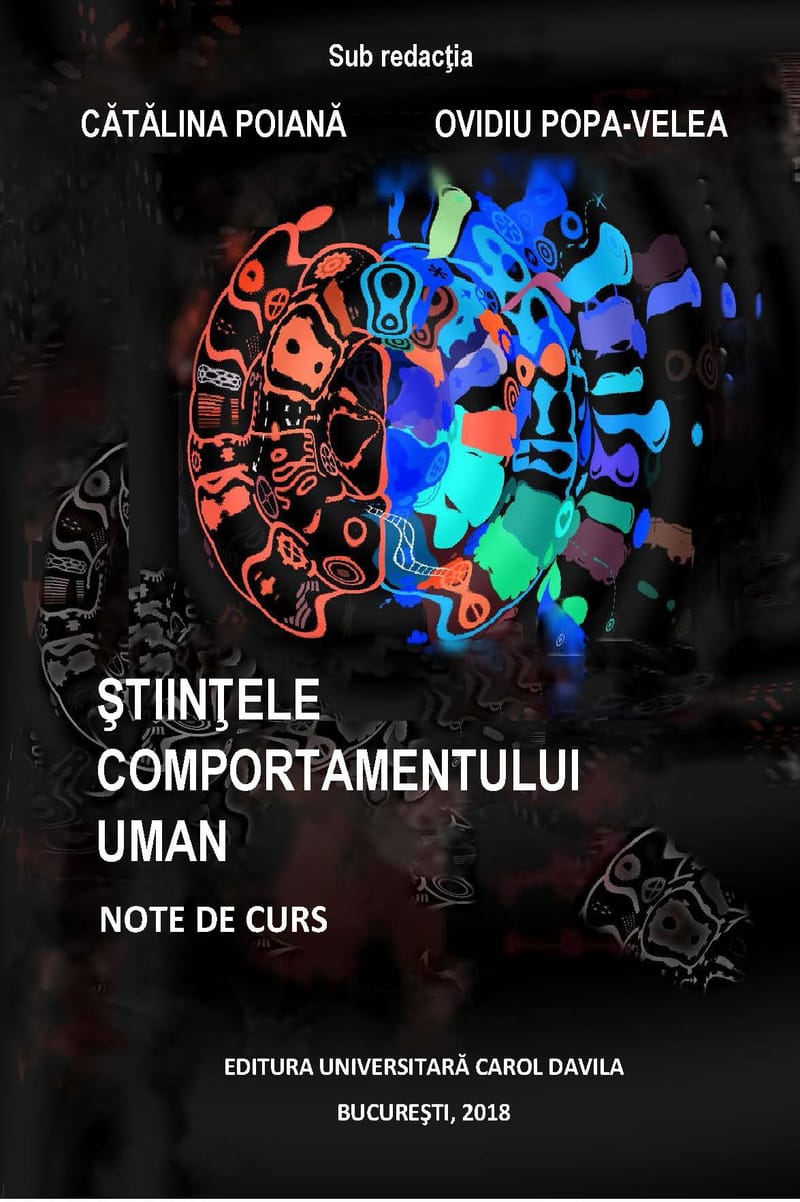
„Ştiinţele comportamentului uman. Note de curs”, 2018, Bucureşti: Editura Universitară Carol Davila
Poiană, C., Popa-Velea, O.
Learn More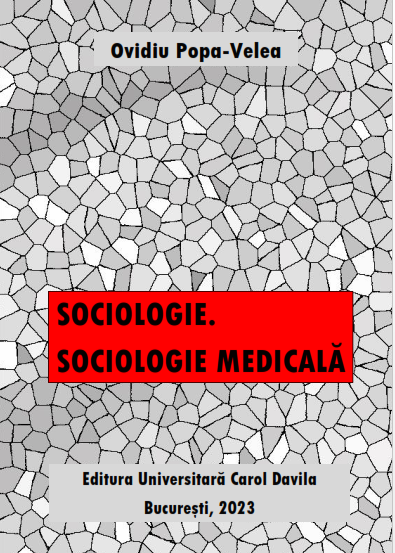
„Sociologie. Sociologie Medicală”, 2023, Bucureşti: Editura Universitară Carol Davila
Popa-Velea, O.
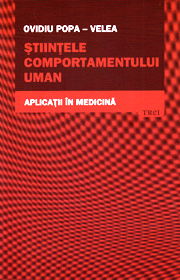
"Ştiinţele comportamentului uman. Aplicaţii in medicină" (ediţia a 2-a, revizuită şi adăugită). 2015, Bucureşti: Editura Trei
Popa-Velea, O.
Learn More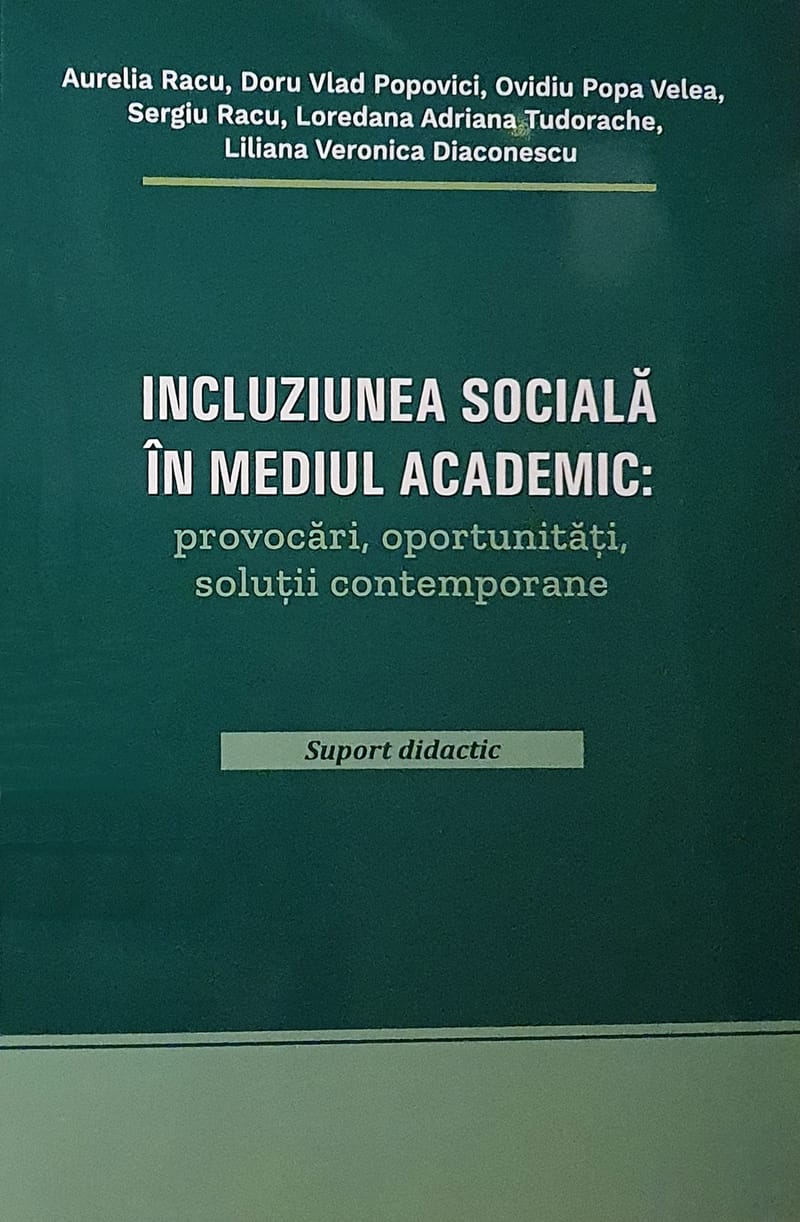
(opţional) “Incluziunea socială în mediul academic: provocări, oportunităţi, soluţii contemporane“. 2006, Chişinău: Editura Pontos
Racu, A., Popovici, D.V., Popa-Velea, O., Racu, S., Tudorache, L.A., Diaconescu, L.V.
Learn More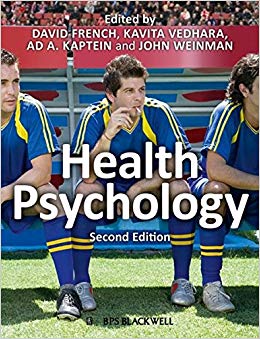
(opţional) „Health Psychology” (2nd Edition). 2010, London: BPS Blackwell
French, D., Vedhara, K., Kaptein, Ad, A., Weinman, J.
Learn More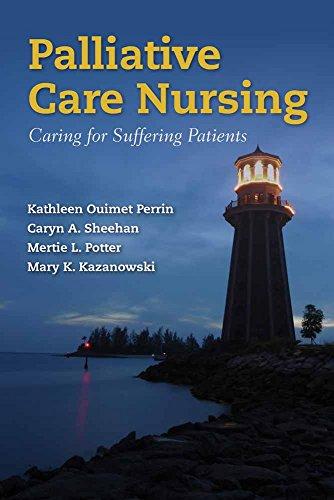
(opţional) "Palliative Care Nursing: Caring for Suffering Patients”. 2011, London: Jones & Bartlett Learning International
Ouimet Perrin, K., Sheehan, C.A., Potter, M.L., Kazanowski, M.K. (Eds.).
Learn MoreReferences (ENGLISH)
REFERENCES FOR THE COURSE OF BEHAVIORAL SCIENCES AND MEDICAL SOCIOLOGY (this list comprizes ONLY references for the psychosocial module of the course)
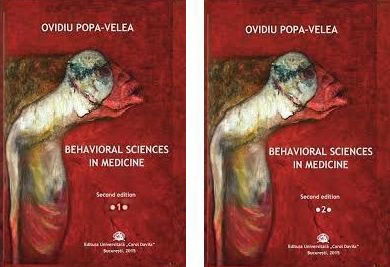
"Behavioral Sciences in Medicine". 2015, Bucharest: Editura Universitară Carol Davila
Popa-Velea, O.
Learn More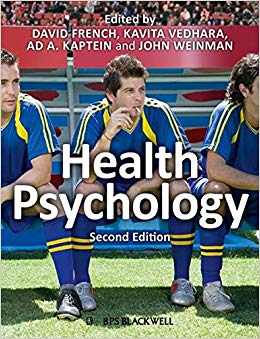
(optional) „Health Psychology” (2nd Edition). 2010, London: BPS Blackwell
French, D., Vedhara, K., Kaptein, Ad, A., Weinman, J.
Learn More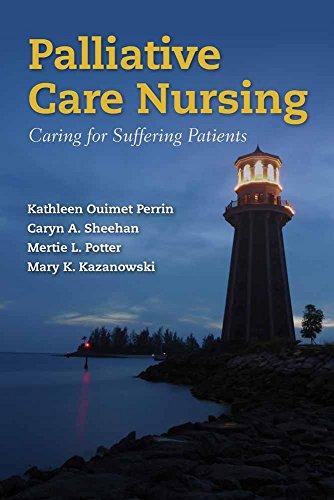
(optional) „Palliative Care Nursing: Caring for Suffering Patients”. 2011, London: Jones & Bartlett Learning International
Ouimet Perrin, K., Sheehan, C.A., Potter, M.L., Kazanowski, M.K. (Eds.)
Learn MoreExam / Examen
Information for 4th year students / Informaţii pentru studenţii anului 4

Cursul opţional de Comunicare în Contexte Clinice Dificile
Obiective generale
Familiarizarea studenţilor cu noţiunea de comunicare clinică dificilă, cauzele şi mecanismele care conduc la aceasta şi cele mai adecvate modalităţi de gestionare a contextelor clinice dificile din punct de vedere comunicaţional.
Obiective specifice:
Cunoaşterea factorilor structurali şi conjuncturali care pot contribui la comunicarea clinică dificilă. Cunoaşterea principalelor caracteristici ale comunicării clinice dificile. Descrierea instrumentelor psihometrice folosite în aprecierea dificultăţilor de comunicare. Cunoaşterea principalelor mijloace de gestionare a comunicării clinice dificile. Înţelegerea rolului psihologului clinician în atenuarea / gestionarea dificultăţilor de comunicare în clinică. La sfârşitul cursului studentul trebuie să: 1. cunoască principalele caracteristici ale comunicării clinice dificile; 2. cunoască factorii de risc şi mecanismele responsabile de comunicarea clinică dificilă; 3. fie familiarizat cu cele mai importante mijloace de gestionare a comunicării clinice dificile.
Programa analitică
1. Laturi ale comunicării clinice: comunicarea generală vs. comunicarea strategică
Modalităţi generale de comunicare în mediul clinic. Modele privind atitudinile faţă de boală şi tratament şi relaţia lor cu comunicarea medicală. Bariere în comunicarea medicală. Dinamica relaţiei medic-pacient şi impactul ei asupra comunicării. Comunicarea strategică.
2. Mijloace de evaluare a calităţii comunicării clinice
Concepte şi instrumente psihometrice aferente: “calitatea vieţii legată de sănătate”, “satisfacţia faţă de îngrijire”, “alianţa terapeutică”, “parteneriatul pentru sănătate”, “aderenţa terapeutică”, “nevoi nesatisfăcute” (unmet needs), “starea de bine” (wellbeing).
3. Comunicarea cu pacientul psihiatric sau comorbid psihiatric
Pacientul cu depresie, pacientul cu anxietate, pacientul necomunicativ, pacientul cu potenţial violent: cauze ale comunicării dificile, mecanisme, manifestări clinice, modalităţi de gestionare şi prevenţie a comunicării deficitare.
4. Comunicarea cu pacientul în situaţii de urgenţă
Pacientul din UPU, pacientul din secţia de ATI: cauze ale comunicării dificile (ex.tipul de personalitate, specificul intervenţiei şi / sau bolii, criza de timp şi resurse), manifestări clinice, modalităţi de gestionare şi prevenţie a comunicării deficitare.
5. Comunicarea cu pacientul incurabil
Pacientul cu afecţiuni cronice progresiv degenerative (ex. b. Alzheimer), pacientul aflat în secţiile de Medicină Paliativă, pacientul cu cancer în stadiu avansat: cauze ale comunicării dificile, mecanisme, manifestări clinice, modalităţi de gestionare şi prevenţie a comunicării deficitare.
6. Comunicarea cu anturajul pacientului
Situaţii particulare: comunicarea de veşti proaste, comunicarea cu aparţinătorii pacientului din secţia de ATI, comunicarea decesului unui pacient, comunicarea cu aparţinătorul cu potenţial revendicativ, comunicarea cu aparţinătorii pacienţilor cu boli cronice. Comunicarea, ca responsabilitate duală.
7. Modalităţi de creştere a abilităţilor de comunicare la personalul medical
Palierul individual: antrenamentul de asertivitate, mindfulness, relaxarea. Palierul grupal/organizațional: grupurile Balint, colaborarea în echipă și în afara echipei, mecanismele instituționale de suport și stimulare pentru personalul medical.
Bibliografie
A. Referinţe obligatorii:
Popa-Velea, O. (sub red.), Diaconescu, L.V., Mihăilescu, A.I. (2023). “Comunicare. Comunicare Medicală”. Editura Universitară Carol Davila, Bucureşti.
Popa-Velea, O. (2024). “Comunicarea în contexte clinice dificile”. Editura Universitară Carol Davila, Bucureşti.
B. Referinţe facultative:
Tulsky, J., Back, A., Arnold, R. (2009). “Mastering Communication With Seriously Ill patients: Balancing honesty with Empathy and Hope”. Cambridge: Cambridge University Press.
Abrahm, J.L., Daubman, B.-R., Collins, M. (2022). “Comprehensive Guide to Supportive and Palliative Care for Patients with Cancer”. Baltimore, MD: John Hopkins University Press.
Varcarolis, E.M., Fosbre, C.D. (2020). “Essentials of Psychiatric Mental Health Nursing: A Communication Approach to Evidence-Based Care (4th Ed.)”. Amsterdam: Elsevier.
Vangelisti, A.L. (2013). “The Routledge Handbook of Family Communication” (2nd Ed.), New York: Taylor & Francis.
Evaluare
Are loc sub formă de test scris cu 30 întrebări complement simplu (timp de lucru 25 de minute).
Se desfăşoară în conformitate cu art.13-44 din Regulamentul de activitate profesională a studenţilor, disponibil la https://umfcd.ro/studenti/norme-legale/regulament-activitate-profesionala/ .
Examenul de restanţă şi de mărire de notă se desfăşoară exclusiv în sesiunea de toamnă, după aceeaşi metodologie şi bibliografie ca examenul iniţial.
Equivalencies / EchivalĂri

Condiţii
Echivalarea studiilor de Psihologie Medicală şi Comunicare Medicală sau de Ştiinţele Comportamentului Uman şi Sociologie Medicală efectuate la altă facultate sau intr-un an de studii anterior la UMF Carol Davila se face numai prin Comisia de Echivalare a Studiilor, înfiinţată la sediul UMF Carol Davila, Decanatul Facultăţii de Medicină.
Studenţii sunt încurajaţi să se prezinte la această comisie cu actele necesare cât mai devreme în cursul anului universitar, întrucât, în cazul în care echivalarea nu este obţinută, aceştia vor trebui să efectueze programul didactic ca orice alt student. În acest caz, se aplică şi în cazul acestor studenţi prevederile art.53 cu privire la numărul de absenţe, din Regulamentul de Activitate Profesională a studenților, disponibil la https://umfcd.ro/studenti/norme-legale/regulament-activitate-profesionala/
Înainte de prezentarea la Comisia de Echivalare a Studiilor, în vederea echivalării cursurilor efectuate la altă facultate, studenţii sunt rugaţi să consulte programa analitică a cursurilor de Psihologie Medicală şi Comunicare Medicală, respectiv de Ştiinţele Comportamentului Uman şi Sociologie Medicală de la Facultatea de Medicină a UMF Carol Davila, pentru a evalua în ce măsură conţinuturile studiate sunt eligibile pentru echivalare.
Acte
1. Studii efectuate la altă facultate
Echivalarea se poate efectua numai în baza documentelor doveditoare, respectiv:
- curricula facultăţii de provenienţă, care să ateste efectuarea unor studii de Psihologie Medicală (nu Psihologie Generală, Antropologie etc.);
- foii matricole de la facultatea de provenienţă, care să ateste absolvirea cursului respectiv.
2. Studii efectuate la UMF Carol Davila, Facultatea de Medicină
Echivalarea se va face pe cale administrativă, în baza catalogului depus anterior la sediul Decanatului Facultăţii de Medicină de către cadrul didactic care a efectuat examinarea.
Rezultat
1. Echivalare totală
Studenţii care obţin echivalare totală sunt scutiţi de susţinerea examenului respectiv, fiind luată în considerare nota de la universitatea de provenienţă sau din anul de studii anterior. Echivalarea se face EXCLUSIV prin secretariatul de an.
2. Echivalare respinsă
Studenţii care nu obţin echivalare vor susţine examen în timpul sesiunii, ca şi ceilalţi studenţi. Pentru a fi eligibili pentru acest examen, studenţii care nu obţin echivalare vor participa în timpul semestrului la activitatea didactică (cursuri şi LP).

Terms
The equivalency of studies in Medical Psychology and Medical Communication or Human Behavioral Sciences (SCU) completed at another faculty or in a previous year of studies at UMF Carol Davila is done ONLY through the Commission for the Equivalency of Studies, established at the Dean's Office of the Faculty of Medicine.
Students are encouraged to present themselves to this commission with the necessary documents as early as possible during the academic year, since, in case the equivalency is not obtained, they will have to carry out the didactic program like any other student. In this case, the provisions of title 53 regarding the number of absences, from the Rules and Regulations regarding the Professional Activity of students (https://umfcd.ro/en/students/professional-activity-regulation/) are applicable.
Before presenting to the Commission for the Equivalency of Studies in order to equate the courses taken at another faculty, students are asked to consult the syllabus of the courses of Medical Psychology and Medical Communication, respectively of Behavioral Sciences and Medical Sociology. This could be helpful in self-evaluating the extent in which the studied contents are eligible for equivalency.
Necessary papers
1. Studies carried out at another faculty
Equivalency can only be performed on the basis of supporting documents:
- the curriculum of the faculty of origin, which certifies the completion of Medical Psychology studies (not General Psychology, Anthropology, etc.);
- transcripts from the faculty of origin, certifying the completion of the respective course.
2. Studies performed at the UMF Carol Davila, Faculty of Medicine
Equivalency will be done administratively, based on the catalog previously submitted to the Dean's Office of the Faculty of Medicine by the teaching staff who performed the examination.
Possible outcomes
1. Full equivalency:
Students who obtain full equivalency are exempted from taking the respective exam, the grade from the university of origin or from the previous year of study being taken into account. The actual operation of equivalency in the student’s record is performed EXCLUSIVELY by the secretary.
2. Equivalency request is rejected:
Students who do not obtain equivalence will take the exam during the session, like all the other students. In order to be eligible for this exam, students who do not obtain equivalence will participate during the semester in the didactic activity (courses and practicals).
Webmaster contact
- Bd Eroilor Sanitari 8
- Bucharest, Romania




